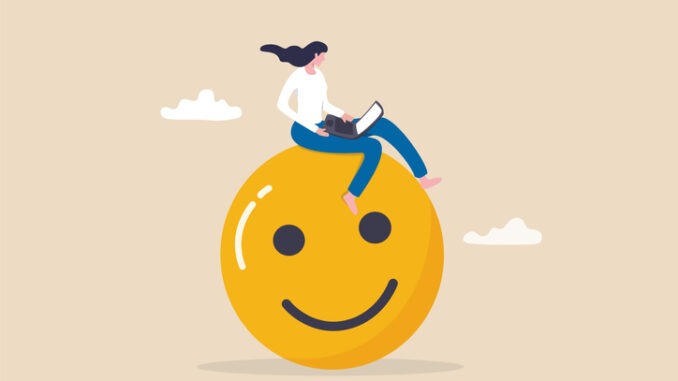
A school sits in the centre of every community and, Emma Gray believes, needs to be ready to take on a bigger role if we are to prepare our young people for a healthy and successful future, with memories of a happy childhood
Read the full article below or read on page 26 of our September magazine
It’s really tough being a kid. How many of us would choose to go back to our childhood and live through it again? Not me. Youth is wasted on the young (or so the saying goes) but there is no way I’d go back, and I can’t help but feel for our young people going through it today.
They seem to have so much more to deal with now – pressure to perform academically and to always behave themselves and an expectation that they will share toys, look after siblings and, often, other family members too. Pressure to keep active while also keeping up with the latest gaming, in which the only body movement required is eyes and digits. An expectation to have all the latest and ‘right’ gear, to keep up with the online conversation, to make sure they are watching the current popular (dare I say unsuitable?) TV programmes – but also to get enough sleep.
When did we start making so many demands on them? When did they start expecting so much of themselves and their young lives?
If ‘the child is father of the man’ I must question what we are setting this future generation up for? Will theirs be a life of ill health, disappointment, conflicting demands and unachievable expectations? Or will they still develop the resilience, adaptability, patience and acceptance required of a successful adult of the future?
As a new Gran I do worry about what is in store for my grandson. He is, as a toddler, gorgeously unaware of what’s ahead and I want it to stay that way for as long as possible. Currently, his only concern is whether his Mum will let him have an ice-lolly when he gets home from nursery.
As an old School Business Leader I still want to do everything in my power to support our students through these years – but how? With funding growing ever tighter, costs increasing, and the staffing required to support the different needs of students going up, it’s beginning to feel like an unachievable challenge. I often think we could just keep channelling funding into our pastoral care provision, but it would never be enough, and I don’t think we could ever completely meet the growth in demand.
So, how does the SBL support the staff supporting the students? How do we keep well-being and mental health right at the top of the agenda for everyone?
When Education Executive asked if I would like to write a series of articles for 2022-23, I could only think of one topic I wanted to write about. Wellbeing. I’ve declared it to be one of two focuses for my work in the trust this year, and it’s a HUGE subject, but the most interesting thing about it is how recently, and quickly, the landscape has changed.
There is no doubt that COVID-19 had an enormous effect on, and continues to influence, our mental health. Suddenly our mortality and vulnerability were bought sharply into the spotlight. The message was that we weren’t safe in our schools, that the very process of coming together for teaching, learning and being with our friends and colleagues put us at risk, and schools were closed.
Family structures were interrupted as we tried to protect relatives, and there was that constant ‘death toll’ barrage on the news. It’s no wonder that the youthful feeling of invincibility, which we all had the luxury to grow up with, has gone. Now the priority is to stay safe, wash your hands, isolate, stay online and be risk-averse. To someone who spent her childhood climbing trees, swimming in the local stream, and helping her Dad turn dandelion leaves into wine, that doesn’t sound like much fun.
So, over the next few months, I’m going to try to explore what we perceive to be ‘wellbeing’ today. I want to identify ways in which we, as school business leaders, can support our communities. I want to consider how we might push back on the limitations that this ‘new normal’ is imposing on us and ask whether all the labelling is helping. I want to think about ways in which we can keep everyone safe but still encourage them to challenge boundaries, step outside their comfort zones and, yes, take some considered risks.
I’m not promising to find answers; there are already a lot of links, resources, services and advice out there supporting wellbeing (take a look at the DfE publication, Mental Health and Wellbeing Resources for Teachers and Teaching Staff, to see what I mean).
No. I want to ASK the questions. I want to look at the bigger picture, and the future we are creating for our young people. I want to consider whether now is the time to:
- Bring the focus back to ‘childhood’ for everyone under 18?
- Discard all the old wisdom about how teaching and support staff contracts work, and listen to what our staff actually want from their time delivering and supporting education?
- Get everyone out into the environment, using it as a classroom while inspiring its protection for the future?
- Encourage a wider engagement with the school community, increasing opportunities for social activities?
- Bring in extended family connections to support the wellbeing of staff and students, and share skills?
- Plan to share resources among schools and trusts so that we don’t all feel compelled to buy those big-ticket items, or state-of-the-art facilities.
There are no simple answers, but it’s important that we start the honest – and at times controversial – conversation. We have become so rigid in our efforts to keep the world out of our schools (and students in), building fences and limiting movement, that we’ve forgotten the benefits and opportunities which our extended community and environment brings.
Do we need to think about adjusting our thinking to adopt a more common-sense approach? In our efforts to risk assess every activity, have we lost spontaneity, adventure and fun – those things that traditionally make up a childhood?
At the heart of the argument is that schools know children. A school sits in the centre of every community and, I believe, needs to be ready to take on a bigger role if we are to prepare our young people for a healthy and successful future, with memories of a happy childhood.
Next time: Let’s start with us. What does wellbeing look like for the SBL?



Be the first to comment